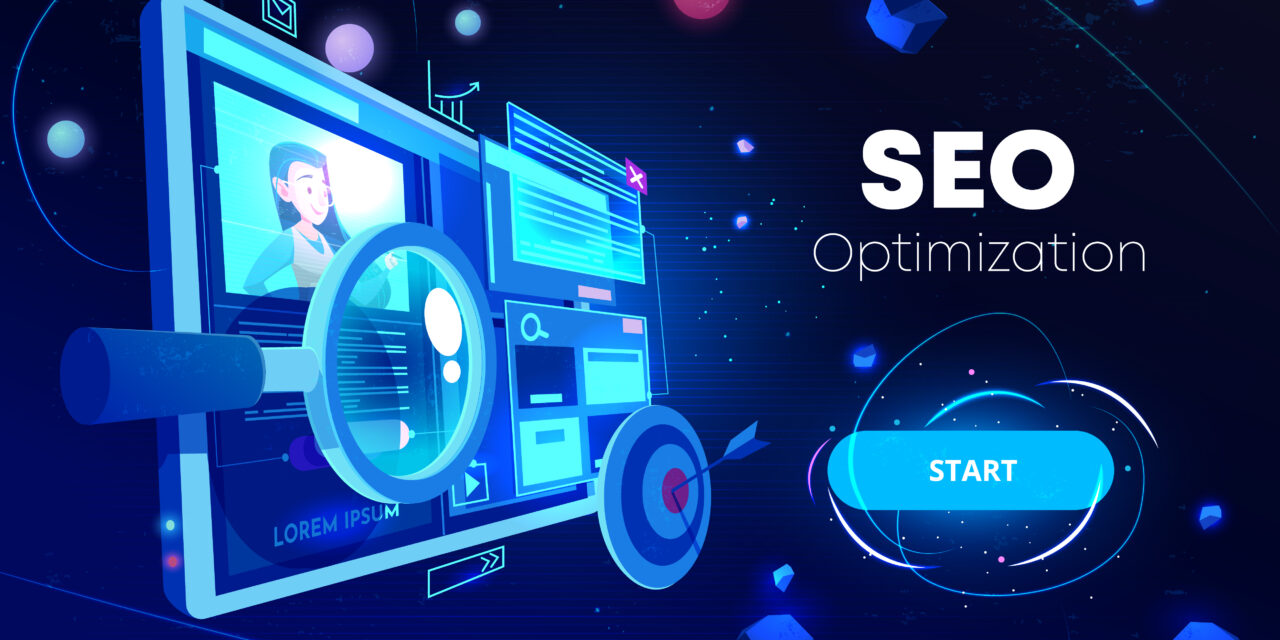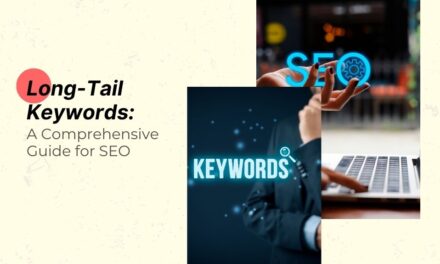The rapid transformation of industries by Artificial Intelligence includes Search Engine Optimization as well. AI’s involvement in search has greatly increased in the last few years as a result of advancements in machine learning and sophisticated algorithms such as Google’s RankBrain and BERT. These technologies examine large amounts of data to improve understanding of user intent and provide more precise search outcomes. AI in SEO allows for more personalized and user-friendly search experiences, transforming the way content is ranked, produced, and improved.
It is crucial for SEO professionals to adjust to AI-powered search algorithms. AI-driven technology automates numerous traditional SEO duties such as keyword investigation and technical evaluations, all the while increasing the standard and significance of content. ChatGPT, like Conversational AI, plays a crucial role in this shift by aiding businesses in better comprehending and foreseeing search patterns. Machine learning SEO instruments can evaluate user engagements in order to boost rankings, creating quicker and more personalized search experiences to cater to individual requirements.
As AI continues to evolve, staying ahead of these changes is crucial for maintaining visibility in search results. AI tools can predict future trends, allowing businesses to optimize their strategies and content based on shifting consumer behaviors. The future of SEO is not just about keywords but about leveraging AI to create valuable, user-centric experiences. Understanding and adapting to this revolution will be key to thriving in the age of AI-driven search engines.
AI-Powered Search Algorithms: The New Frontier
AI-powered search algorithms have transformed how search engines like Google understand and rank content. Google’s RankBrain, introduced in 2015, was a groundbreaking machine learning algorithm designed to improve how search engines interpret user queries. Unlike traditional keyword-based systems, RankBrain uses AI to comprehend the relationships between words and concepts. This allows it to better understand search intent, particularly for complex or unfamiliar queries, and deliver more relevant results. For example, if a user searches for “best laptops for students,” RankBrain evaluates not only the keywords but also the broader context to prioritize useful content that matches the search intent.
BERT, released in 2019 as another crucial AI model, goes a step beyond in enhancing Google’s handling of natural language. Assisting the search engine in understanding words based on their context enhances comprehension of subtle or informal queries. This is especially crucial with the growth of conversational AI and long-tail keywords. For example, BERT enables Google to comprehend words such as “for” or “to” in search queries, altering their significance.
Together, RankBrain and BERT emphasize the role of machine learning SEO, enabling Google to adapt search results dynamically based on user behavior and query patterns. These advancements highlight the importance of producing high-quality, intent-driven content that aligns with how modern AI algorithms process and rank information.

Content Creation and Optimization in the Age of AI
AI tools like ChatGPT and Jasper are revolutionizing content creation, enabling faster and more efficient production of high-quality material. These tools use advanced machine learning algorithms to generate content based on user prompts, making them valuable for tasks such as writing blog posts, meta descriptions, and even creating SEO-optimized outlines. By analyzing vast datasets, they can also suggest keywords and topics that resonate with search engine algorithms, greatly enhancing the effectiveness of AI in SEO.
Still, even though these tools enhance content creation efficiency, human supervision is still essential. AI-created content may occasionally be missing subtlety, innovation, or the detailed analysis necessary for intricate subjects. Making sure that humans review and edit the content is vital for maintaining its quality, coherence, and alignment with user intent. This is especially crucial for conversational AI tools such as ChatGPT, which could generate robotic or irrelevant text without adequate supervision and direction.
To optimize content for AI-driven search engines, it’s essential to focus on producing valuable, user-centered content. Prioritize clarity, relevance, and structure, incorporating machine learning SEO techniques. Additionally, using tools like ChatGPT SEO for generating detailed outlines based on the top-ranking articles can help create comprehensive content that ranks better in search engine results. Regular updates to the content are also necessary to keep up with evolving SEO algorithms and user preferences.
The Role of Natural Language Processing (NLP) in SEO
Natural Language Processing plays a pivotal role in modern SEO, significantly enhancing how search engines understand and process content. By integrating NLP into search algorithms, platforms like Google can now grasp not only the literal meaning of words but also the context and intent behind them. This means search engines are better equipped to interpret complex queries, providing more accurate results based on user intent rather than just keyword matching.
NLP is crucial for enhancing keyword accuracy and semantic search effectiveness. It allows search engines to identify similar words, connected expressions, and the complete context of a search inquiry. For example, when a person looks up “top dining spots,” NLP assists Google in recognizing that this probably pertains to eateries, even if the specific term “restaurant” is not mentioned. Switching from matching keywords to delivering results based on user intent is crucial for enhancing user experience.
To optimize content for AI-driven search engines using NLP, focus on creating conversational AI-friendly content. This involves using natural language and addressing long-tail keywords that mimic real-life questions or queries. Additionally, optimizing for machine learning SEO means aligning content with the searcher’s intent and context rather than focusing solely on specific keywords. Using NLP tools to identify related topics and entities can also enhance content depth and relevance, boosting its ranking potential.
Voice Search Optimization: A Growing AI-Driven Trend
The rapid adoption of AI-powered voice assistants like Alexa, Siri, and Google Assistant is transforming the way users interact with search engines. These devices are driving a shift towards voice search, where users rely on spoken queries instead of typing. The convenience and speed offered by voice search are major factors behind its growing popularity, with studies predicting that voice searches could account for more than 50% of all searches by 2024.
The emergence of conversational AI has a significant influence on SEO. Voice queries, unlike traditional text searches, are typically longer and more conversational, necessitating businesses to adjust their SEO strategies. Voice search optimization focuses on utilizing natural language processing and machine learning SEO to help voice assistants better comprehend the user’s intentions.
To optimize content for voice queries, businesses should focus on using long-tail keywords that reflect how users speak, often in question form (e.g., “Where is the nearest coffee shop?”). Writing in a conversational tone and answering questions directly is also key to appearing in featured snippets, which are commonly used by voice assistants to provide quick answers. Additionally, ensuring that your website is mobile-friendly and has fast load times can improve the user experience for voice search, which frequently happens on mobile devices.

AI in Technical SEO: Automation and Analysis
The integration of AI in technical SEO has revolutionized the way websites are audited and optimized. AI-driven tools like Screaming Frog and SEMrush can now automate tasks that previously required extensive manual effort. These tools can quickly crawl websites to identify common issues such as broken links, duplicate content, and indexing errors, streamlining the entire SEO audit process. This automation allows SEO professionals to focus on more strategic tasks, saving time and reducing human error.
AI also has a vital impact on improving website speed and mobile optimization. AI algorithms in tools like SEO PowerSuite identify performance problems like slow-loading pages and non-responsive design elements, providing recommendations for enhancements. AI assists in resolving these problems to guarantee that websites are suitable for mobile devices and enhanced for speed and user experience, key components in current SEO practices.
Moreover, AI-driven tools improve crawling and indexing by using machine learning to prioritize high-impact pages for optimization. These tools help manage large-scale websites more effectively by automating the generation and submission of XML sitemaps and robots.txt files, ensuring that search engines crawl the most relevant pages efficiently.
Incorporating AI into technical SEO not only enhances the efficiency of routine tasks but also helps maintain high-performance websites that are well-optimized for search engines and users alike. As AI continues to evolve, it will further streamline technical SEO, making it a vital tool for staying competitive in the search landscape.
Looking Ahead: The Future of SEO in an AI-Driven World
The future of SEO will be heavily shaped by the continuous evolution of AI and machine learning. AI tools will play an increasingly dominant role in search algorithms, driving smarter and more personalized search experiences. For example, AI will refine how search engines interpret user intent through natural language processing, making it essential for businesses to create content that resonates with conversational search patterns and complex user queries.
With the advancement of AI technologies, voice search and visual search optimization are expected to become more important, necessitating adjustments in SEO strategies. To enhance their likelihood of being included in voice search results, marketers must prioritize optimizing for conversational keywords and structured data. Both a challenge and opportunity exist in embracing AI-driven SEO as algorithms evolve quickly. Businesses can gain a competitive edge by utilizing these tools for predictive analytics, keyword research, and content optimization.
Looking ahead, one of the most significant opportunities is AI-generated content, which can streamline content creation processes. However, human oversight will remain crucial to ensure the content aligns with user expectations and emotional needs. The challenge will be in maintaining creativity and authenticity while utilizing AI for efficiency.
In order to stay ahead, marketers and businesses need to be proactive by always staying updated on the newest AI in SEO trends and being flexible to adapt to algorithm alterations. Continuous learning, along with utilizing AI tools, will be essential for success in this AI-dominated environment.












